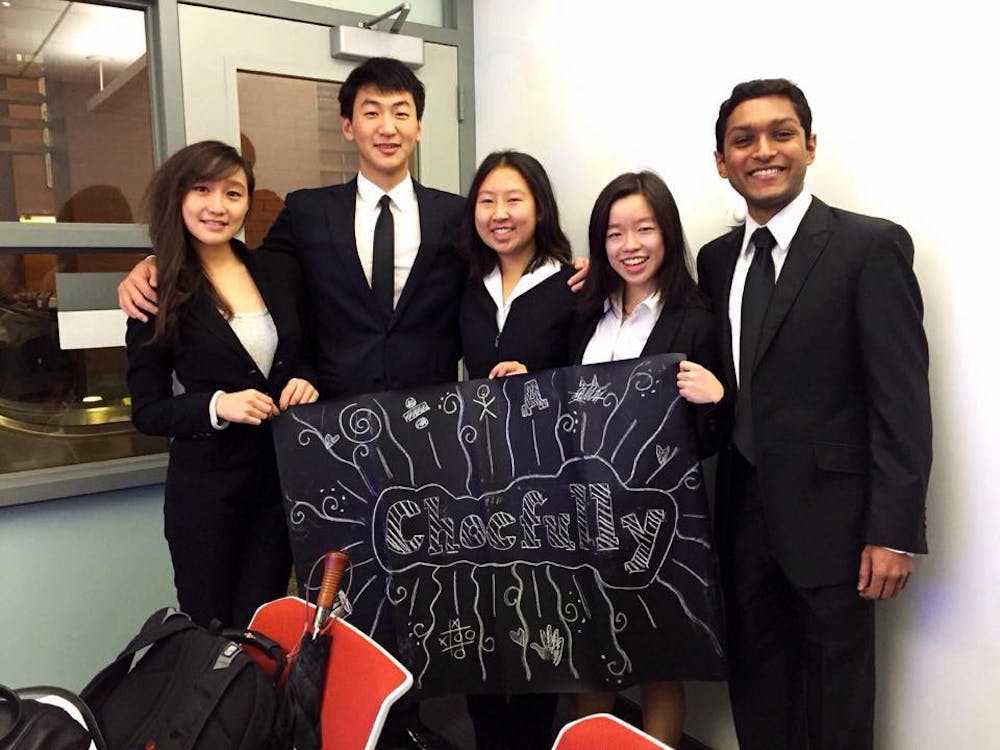
Two teams from Penn are one step closer to winning the annual Hult Prize, a social entrepreneurship start-up incubator with a $1,000,000 prize. Now they must work to prepare for regionals, where the competition gets more intense.
Every September, the Clinton Global Initiative presents this substantial monetary prize to the team that devises the best solution to a proposed problem. This year's teams, which can consist of undergraduate and graduate students along with a maximum of one alumnus, must work toward a five-year solution for the lack of early childhood education in urban slums and beyond. Five regional rounds will be held in Boston, San Francisco, London, Dubai and Shanghai, and two Penn teams will compete against the 50 other ideas still in contention.
This year, the Hult Prize launched a fast-track plan for students to reach the regional round without competing against thousands of applicants in the main pool. Shuva, the winning team out of the Penn applicants, will move on to the regional round in Shanghai. The team's name means "hope" in the principle language of Zimbabwe.
Team Shuva is made up of students in Penn's Lauder Institute, a joint degree graduate program that integrates management education with international studies. Their idea involves the creation of educational radio content, as many individuals in slums have access to radio and could benefit from listening to educational material.
“We wanted to reach people in a simple way,” Shuva member Eduardo Escribano said. “We are hoping to reach children who would not get this content otherwise.”
A team of Penn freshmen, named Chocfully, qualified for the Boston regionals through the larger applicant pool.
Chocfully member and Wharton freshman April Chang did not want to disclose too much information about her team’s idea, in the spirit of friendly competition, but her team is currently working towards refining their pitch and seeking mentors to help guide them into the next rounds.
In the event that neither team wins their regional rounds, both are interested in trying to find other funding and pursuing the implementation of their ideas in the future.
“I would love to run with this idea,” Chang said. “I can’t speak for my teammates, but we are definitely excited about its viability — we really think this idea could help people.”
Engineering sophomore and campus student director for the Hult Prize Molly Wang explained that each regional location has its own environmental identity. In Boston and Shangai, Penn teams may face distinct groups of competing teams.
“San Francisco has more of a competitive edge, so more tech-inspired ideas may go there,” Wang said. “Also the judges for regionals come from the surrounding area. We may have two Penn teams competing in the final six.”
Wang also hopes that if neither team wins their regional rounds, they will seek funding at one of the other social-entrepreneurship incubators offered at Penn, including the Wharton Business Plan Competition, which offers up to $30,000 for the winning team.
Besides refining their pitches for the next round, teams must also work to find funding to get to the regional rounds, as the Hult Prize only covers the cost of getting to the final round.
Wang still holds the idea that this is the best time for students to take a chance on getting funding for their ideas, as there are fewer consequences for failure. Wang also feels that the social impact nature of the Hult Prize “gives people real incentive to look at how a business can be profitable but also work toward a greater social good.”
The regional round will take place on March 13, and the final round will be Sept. 21 in New York City.
The Daily Pennsylvanian is an independent, student-run newspaper. Please consider making a donation to support the coverage that shapes the University. Your generosity ensures a future of strong journalism at Penn.
DonatePlease note All comments are eligible for publication in The Daily Pennsylvanian.








